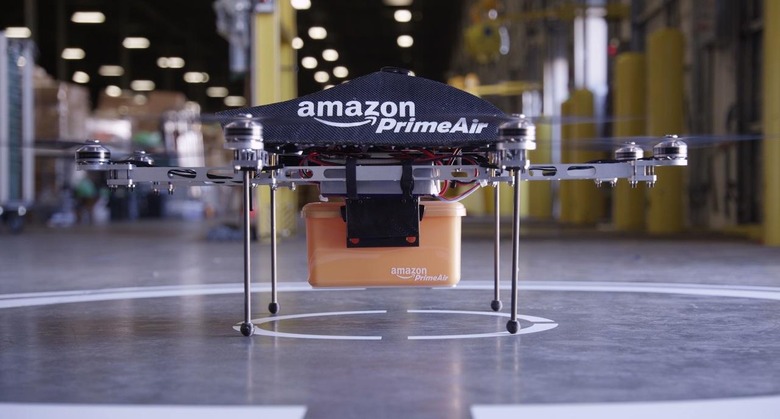Amazon Slams FAA Drone Delay With International Shaming
Thought Amazon would be ecstatic the FAA had given it permission to test its Prime Air delivery drones? Think again: Amazon execs have slammed the US government agency, despite finally getting the green-light. The Federal Aviation Administration delivered what it thought was good news last week, telling the online retailer that it could cautiously try flying its remote-control delivery drones in US airspace as a prelude to perhaps one day dropping off packages from the sky. Instead, it opened a can of worms, with Amazon claiming the FAA's tardiness meant it had already scrapped the prototype.
"We don't test it any more," Paul Misener, Amazon VP for global public policy, said in a written testimony for the Senate Subcommittee on Aviation Operations, Safety and Security. "We've moved on to more advanced designs that we already are testing abroad."
If the ding – that the US attitude to drones is behind the times – wasn't entirely clear, Misener made sure to really rub the FAA's face into it.
"Nowhere outside of the United States have we been required to wait more than one or two months to begin testing," he continued. "The [FAA] already has adequate statutory authority. What the FAA needs is impetus, lest the United States fall further behind."

Amazon's turnover of drone tech already seemed rapid. Even as of July 2014 the company was onto its ninth-gen prototype, the company had earlier revealed, capable of flying at speeds of up to 50 mph, and carrying packages up to five pounds in weight.
According to the FAA's criteria for allowing trials to begin, Amazon would not have been allowed to test its drones in any conditions other than where direct line of sight between operator and UAV was possible. As well as daytime-only testing, the vehicles could only be taken to a maximum altitude of 400 feet.
The Administration also expected in-depth reports following each test, with metrics such as how long the pilots were working, and what communication issues may have occurred.
Amazon applied on Friday for permission to test a new, more advanced version of the UAV, though it was also pointed out to the Subcommittee that overseas testing had been given permission to go out of line-of-sight, such as in France.
The FAA's guidelines are yet to be finalized, with that process not expected to be completed until 2016 or 2017.
SOURCE Amazon [pdf link]
